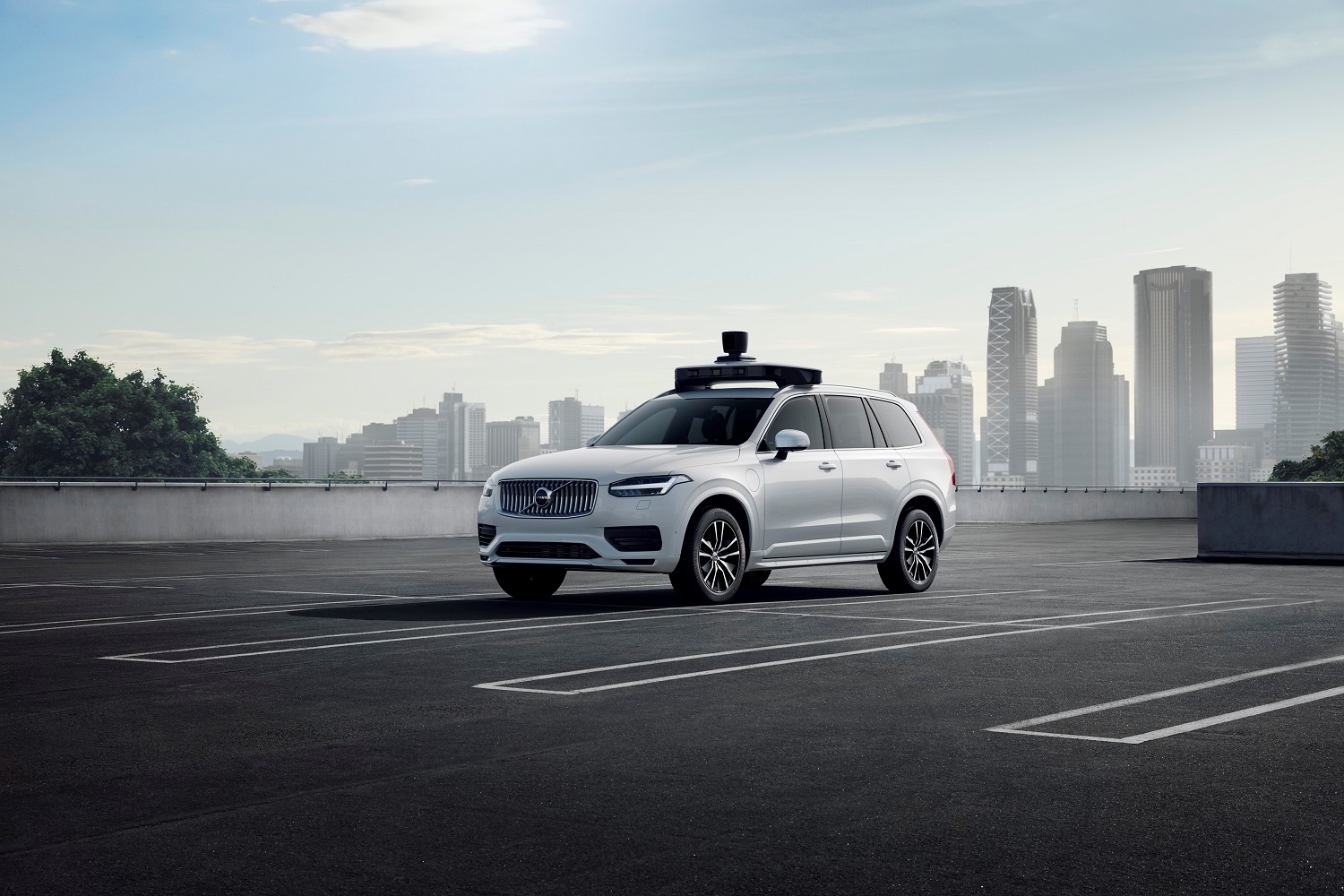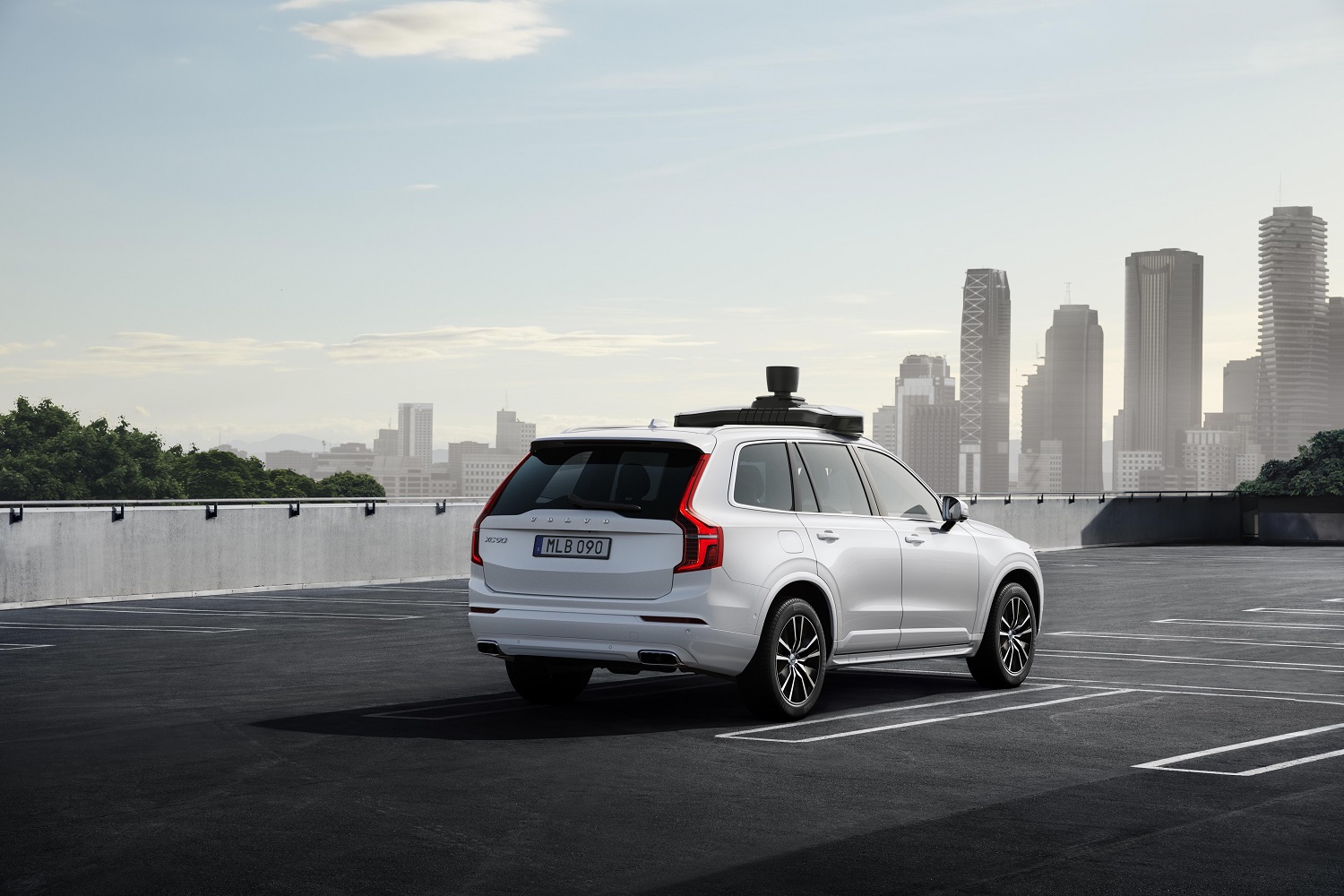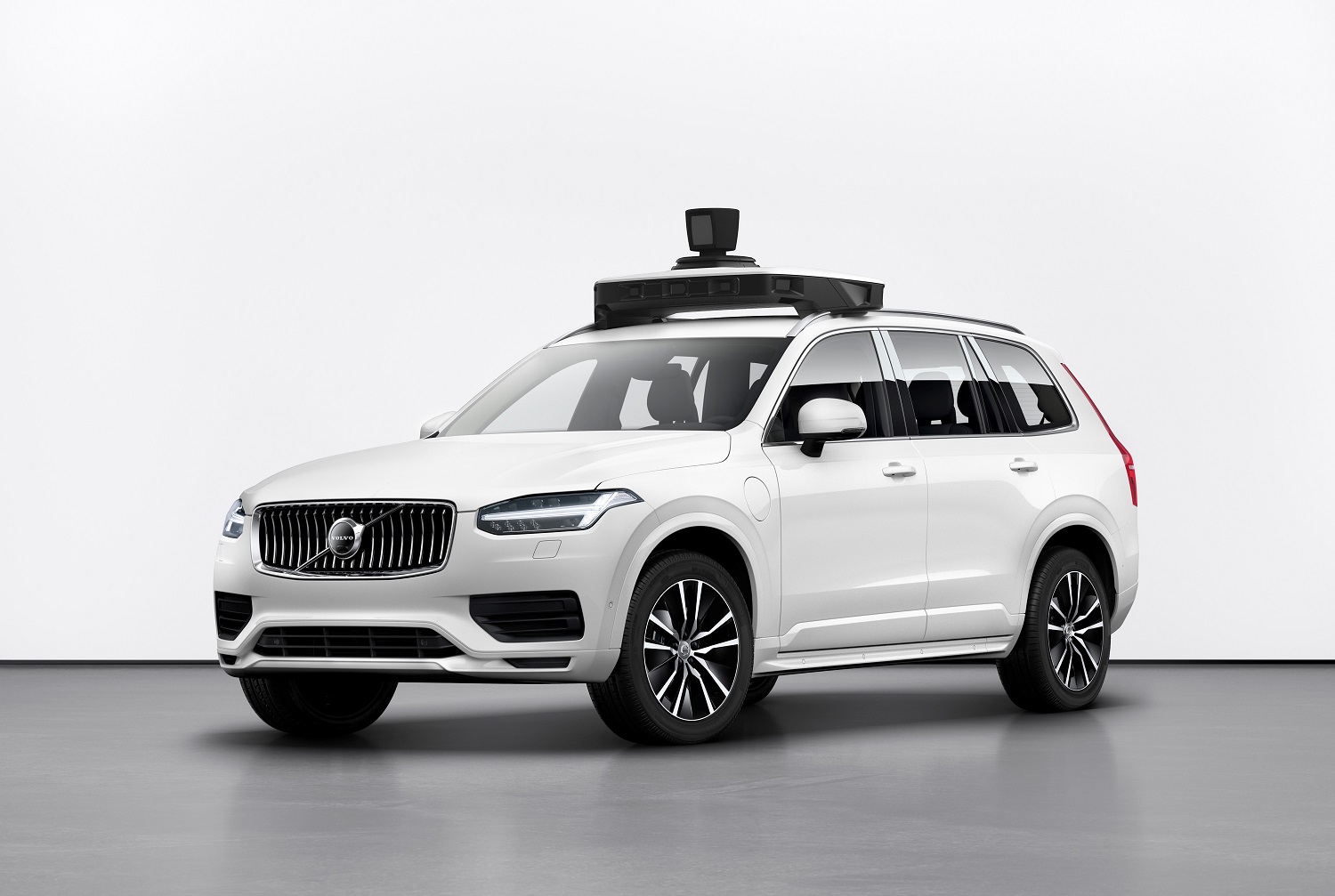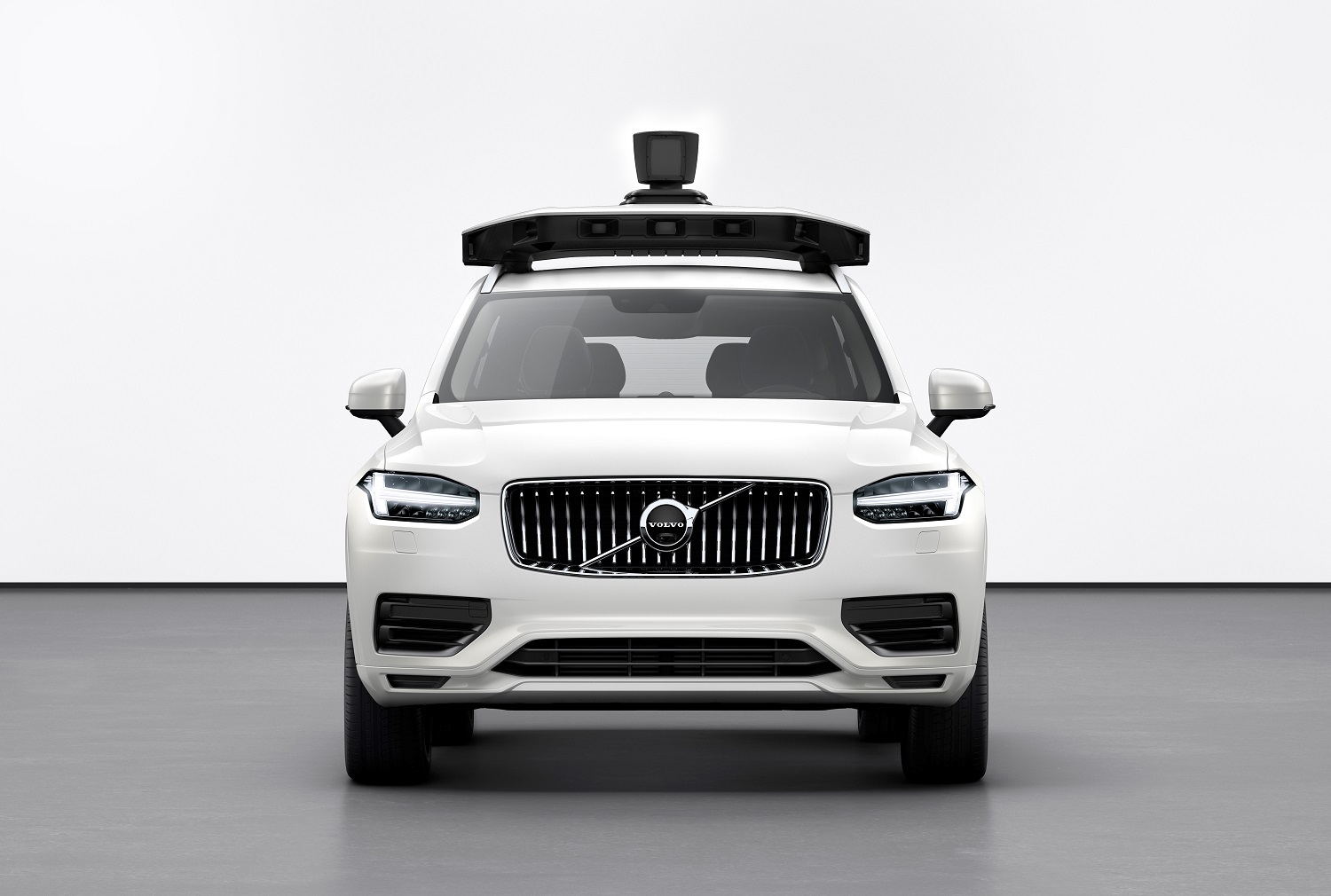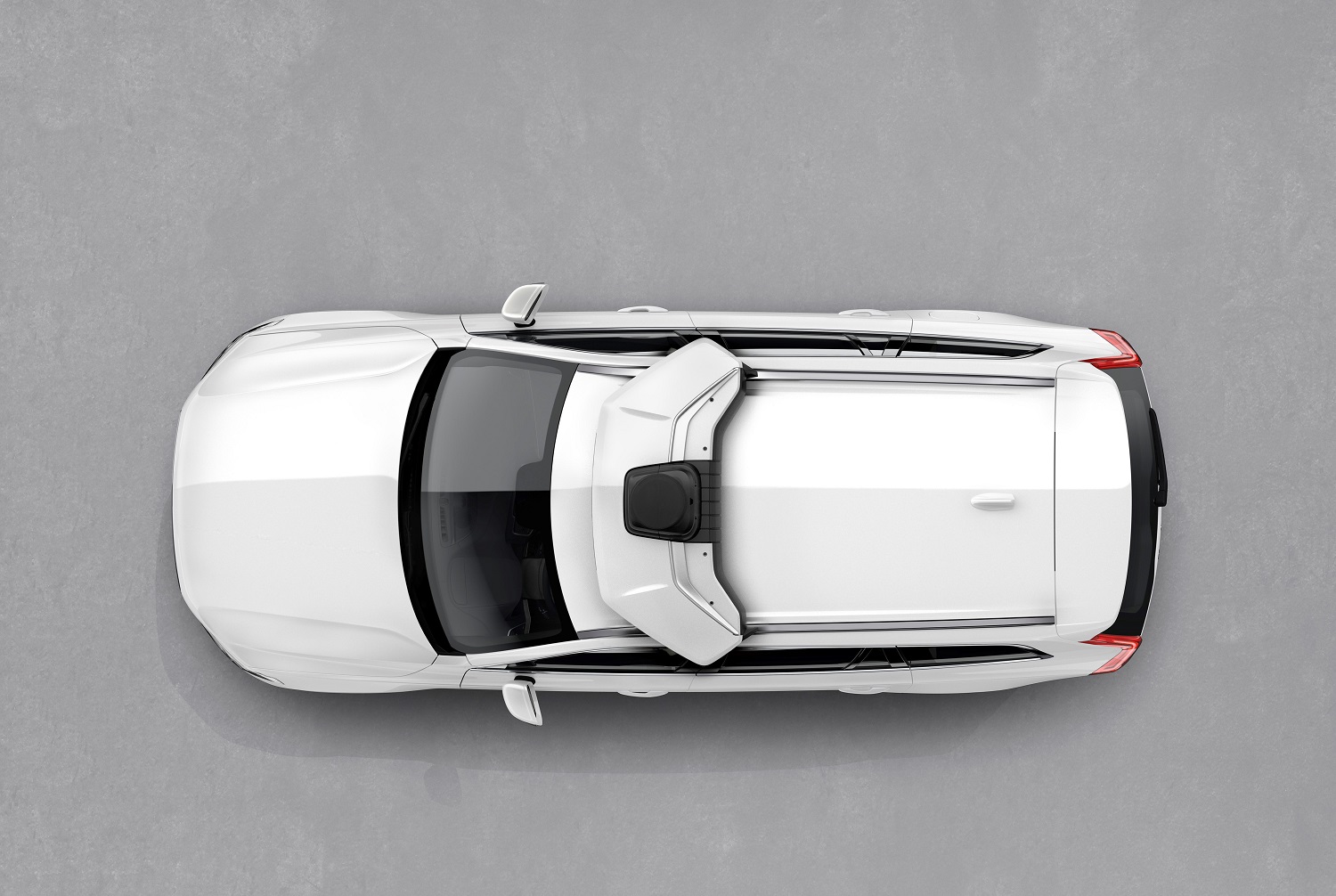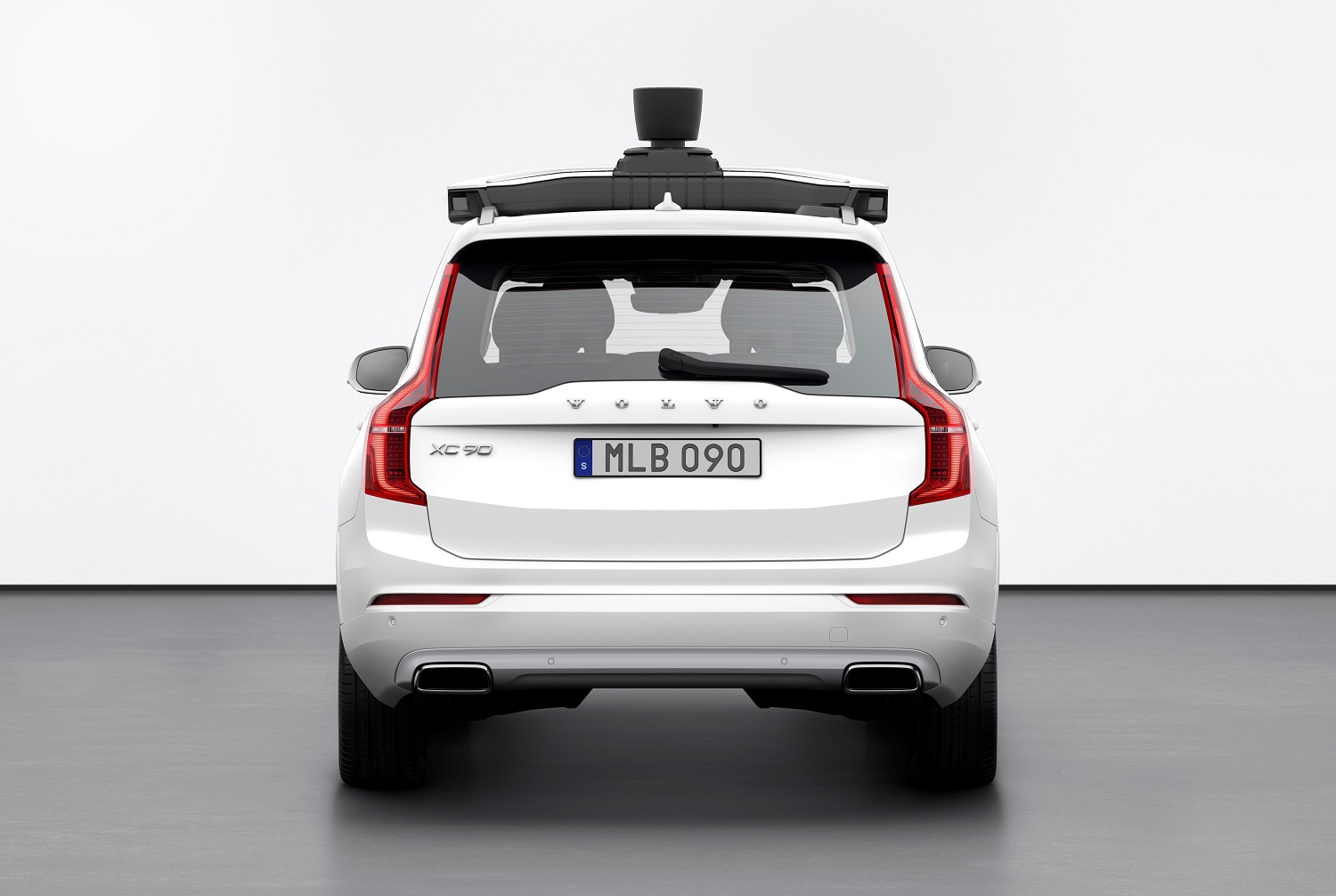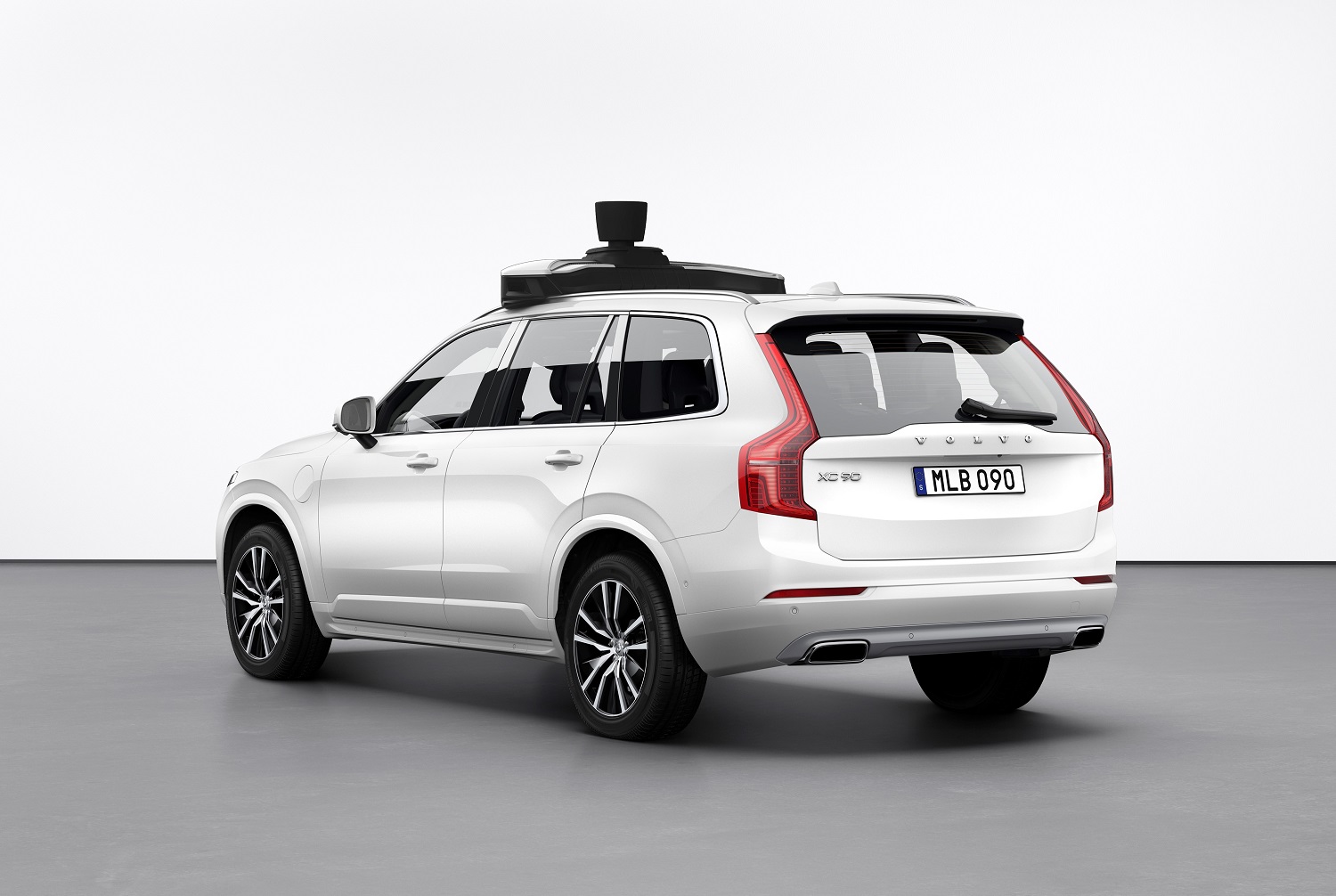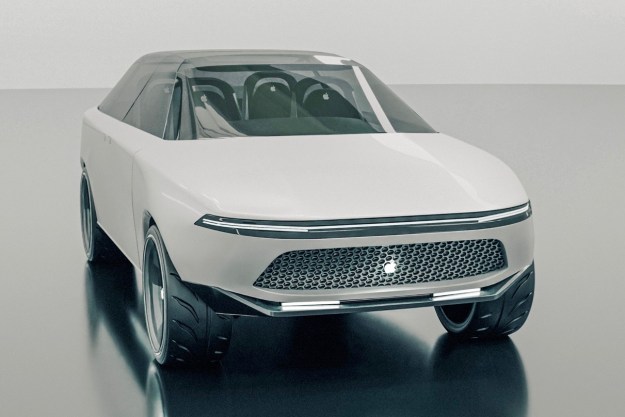Sweden-based Volvo and California-based ride-hailing giant Uber have unveiled what they brazenly call a production vehicle ready for autonomous driving. Developed jointly by the two companies, the SUV opens the next chapter in their three-year old collaboration. Don’t expect to see one at your nearest Volvo dealer anytime soon, however.
Like earlier prototypes, the model is based on Volvo’s second-generation XC90. It looks almost like a regular-production SUV, but the hardware attached to the roof rails confirms it’s anything but stock. Uber modified the XC90 with the self-driving technology it developed in-house. The transformation adds a bevy of sensors mounted on the roof and underneath the sheet metal that scope out the road ahead and feed data to the on-board control unit that drives the car. The firm stressed the sensors allow Uber’s self-driving system to safely operate in urban environments; it notably makes no mention of driving on the freeway, or in rural areas.
Volvo explained several back-up solutions programmed into the XC90 bring it to a full stop if the primary autonomous systems fail for any reason. While the joint statement announcing the prototype didn’t address how Uber channeled the lessons learned from the 2018 accident that killed Elaine Herzberg into the technology unveiled today, an Uber spokesperson told Digital Trends the firm took comprehensive measures.
“Before any software is released, and the code goes into a car that’s released on public roads, we put it through simulations. It’s a virtual environment for self-driving cars. Then, the car goes through a series of test scenarios on our test track. There are over 70 of them, and it has to pass them all without any safety-related failures,” the representative explained.
Technical specifications haven’t been released yet, but the flap on the driver-side fender suggests the XC90 is powered by Volvo’s gasoline-electric plug-in hybrid technology. It would consequently be capable of driving on electricity alone for relatively short distances.
The prototype will be deployed on public roads, but it hasn’t gone through virtual simulations yet, the representative told Digital Trends.
“The goal is to get these cars on the road in 2020,” Uber told us. The company added production will ramp up slowly while it determines precisely what it needs to do to ensure the prototypes perform as intended.
We don’t expect either company to put the autonomous XC90 in the hands of regular consumers in the near future. It’s headed for production, but it remains a prototype that needs to be operated by trained professionals.
Volvo has already announced plans to sell a fully autonomous car to regular drivers in the early 2020s. It will be built on the SPA2 platform the third-generation XC90 will inaugurate in 2021, and it will be able to drive itself without human supervision on highways and ring roads.
Editors' Recommendations
- Tesla Autopilot vs. full self-driving: What’s the difference?
- Cruise autonomous vehicle drives over woman just after she was hit by another car
- Volkswagen is launching its own self-driving car testing program in the U.S.
- Waymo’s robotaxis are coming to Uber’s ridesharing app
- Autonomous cars confused by San Francisco’s fog

